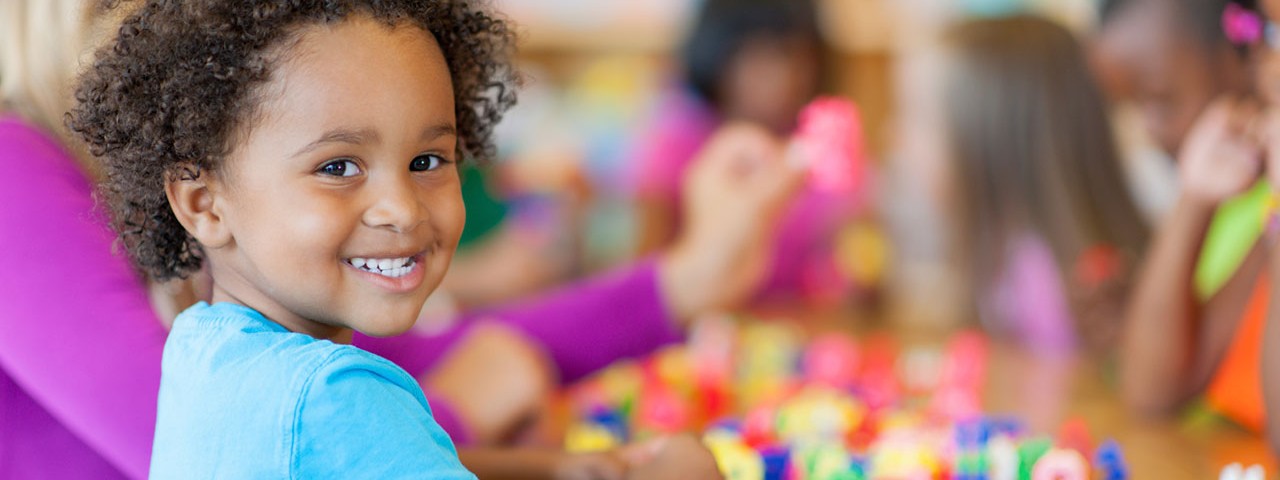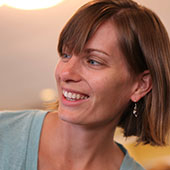The Power of Play in Child Development
- Tweet
 "Play is really the work of childhood." - Fred Rogers Tweet this!
"Play is really the work of childhood." - Fred Rogers Tweet this!"Play is often talked about as if it were a relief from serious learning. But for children, play is serious learning. Play is really the work of childhood." -Fred Rogers
One of the great joys of parenting is watching our children play. It may start when your baby first grasps a small toy and pulls it closer for a good look. He discovers that when he makes a sound, you make the same sound in reply, and that when he bats a hanging toy, it swings and makes a rattling noise. Delighted, he does it again and again.
As babies develop and grow, so does their play. It’s the way that children learn about their world, testing hypotheses about how things work, exploring their physical abilities, and building their understanding of how to get along with other people.
Watching children play and playing along with them is fun, and it’s also a window into their social and cognitive development. Just like a baby's first steps and first words, how a baby plays represents important developmental milestones.
It’s helpful for parents to be aware of play milestones.
These milestones can help us observe and fully appreciate the work that our children are doing as they play. They can also give us ideas for how we can play with our children and what is normal behavior when they play around other kids.
Let's say you and a friend get together for a play date with your 18-month-old toddlers. Normal play at this age is "parallel" - toddlers play at their own activities next to one another, maybe pausing to notice each other from time to time. If you approached the play date expecting the kids to play together and share toys, then everyone would probably end up frustrated, adults and children alike.
However, if you know that parallel play is exactly what toddlers are expected to be doing at this age, then you know that your job is to provide a safe area for the children, perhaps including several of the same toys so that sharing isn't an issue. By the time children are around three years old, play is much more social; you can expect them to be playing together in a more interactive way.
Understanding the normal development of play can also help you to be on the lookout for any red flags that might signify a developmental concern in your child. As with all milestones, not all children will hit play milestones at the same time, and some may be more interested in certain types of play than others. However, if your child isn't meeting play milestones, don't hesitate to bring this up with your pediatrician or other health professional.
Here’s an overview of typical play behaviors for children of different ages:
Birth to 6 months:
- Interacts with parents and caregivers through back-and-forth facial expressions and babbling.
- Reaches for and grabs toys. Passes them from one hand to another and puts them into mouth.
6 months to 1 year:
- Points at things to draw your attention to it.
- Looks for objects that you hide.
- Plays games like peek-a-boo or pat-a-cake with you.
- Experiments with objects by shaking, banging, throwing, and putting things into and out of a container.
1-2 years:
- Uses objects to build, such as stacking to make a tower.
- Engages in pretend play, like caring for a baby doll, serving and eating pretend food, or talking on a toy phone.
- Most play is parallel to other kids, playing near peers but only occasionally interacting with them.
- Sorts shapes and colors.
- Practices physical skills like climbing, jumping, kicking a ball, pulling a toy while walking.
2-3 years:
- Finds creative uses for objects. Blocks become a birthday cake, a stick becomes a fork, and a spoon becomes a brush for a doll's hair.
- Pretend play grows more complex and is more likely to be shared with friends.
- When playing with friends, is able to take turns.
3-4 years:
- Children prefer to play together rather than alone. Play becomes more coordinated, cooperative, and imaginative.
- Interested in board or card games and can follow simple rules of the game.
You can find more information about developmental milestones from the CDC and Autism Science Foundation. Zero to Three also has some fantastic resources on the development of play, including tips on how to play with your baby or toddler at different ages.

